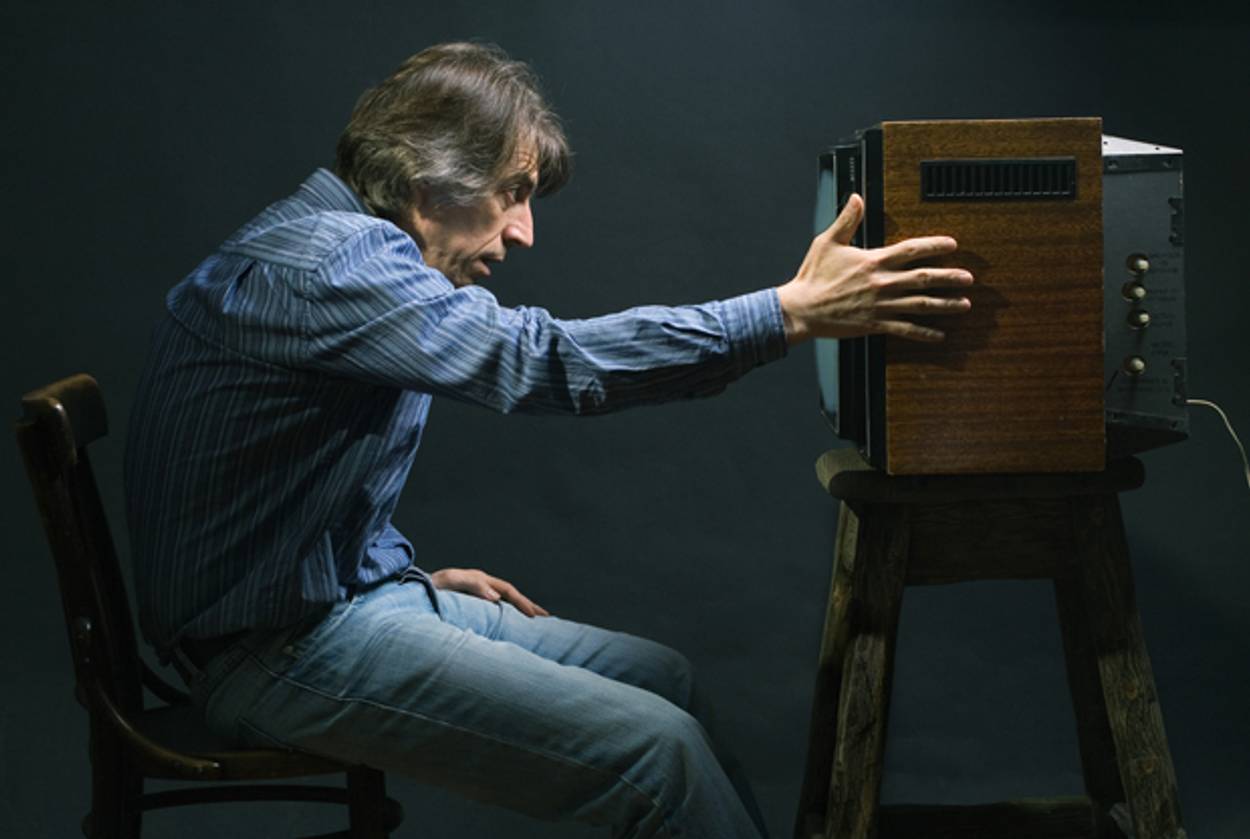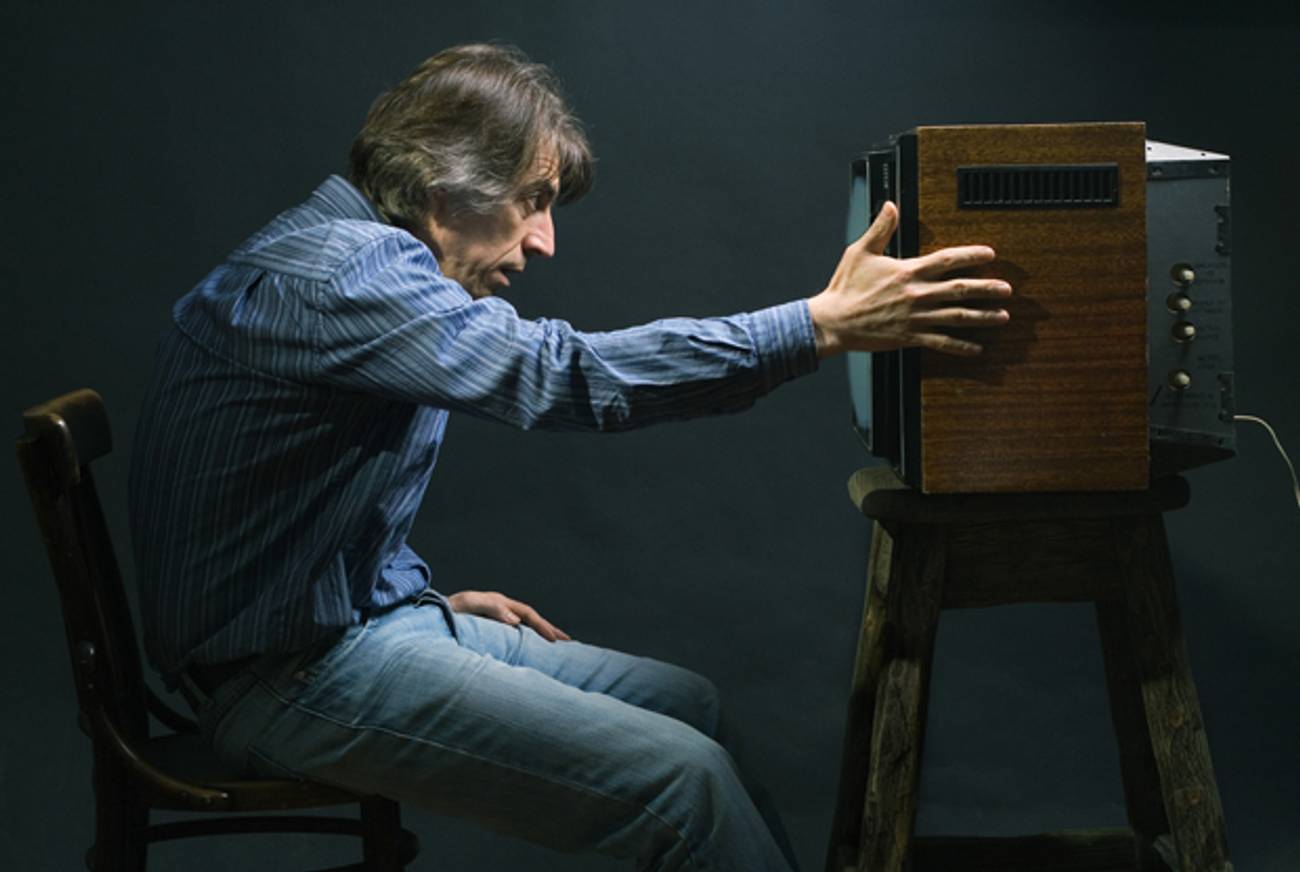TV Is for Dummies
Stop comparing television shows to great novels. They’ll never be as good.




America, someone once said, is a nation where first-rate minds spend their time discussing second-rate movies. That person should’ve seen Netflix.
Ever since the video-on-demand service, and others like it, rearranged the rhythms of our viewing habits, television has ascended to a perch previously reserved exclusively for the furrow-browed and the ink-stained, the Tolstoys and the Henry Jameses and the Prousts. The writers. But walk among the young and cultured these days—the same types who, four or five decades ago, would’ve spent their Saturdays trading literary allusions, informed or otherwise—and all you’re likely to hear is talk of Don Draper and Walter White and that gentleman who killed the king and slept with his sister and was taken captive and whose name, like the names of all the mirthless whisperers who occupy HBO’s Game of Thrones, I’ve no intention of learning.
In and of itself, this new-found enthusiasm for television ought not bother anyone. On the contrary: It is a pleasure to see a medium that not too long ago seemed destined to wallow in a wilderness of Survivors and Joe Millionaires deliver such well-made, intricately plotted, and superbly acted shows. And it is a joy to see our nascent technologies release the medium from the clutches of the mediocre, allowing new talents and new channels of distribution to experiment and take risks. I deny none of this. I revel in it. And although not much of a watcher myself, I am thrilled for my friends and their TV sprees, chasing one episode with another and not stopping until their eyes throb. That is, I’m thrilled until someone mutters The Phrase.
The Phrase has many variations, but it’s always a version of this: “TV is so good now that it’s just as great as our great novels. Maybe even better!” The more discerning bother making specific cases—suggesting, for example, that David Simon is our modern-day Dickens or that Vince Gilligan, creator of Breaking Bad, would’ve felt completely at home had he stumbled into a party at Turgenev’s and was seated right next to his apparent equal, Dostoyevsky.
It’s time to stop this madness. Let the unfashionable truth ring clear: No matter how good it is, it will never be more than just TV—an unparalleled distraction, crisply shallow, full of wondrous sounds and gorgeous furies that ultimately, in the ways that are truly vital and important to human life, signify nothing. It does not now, nor will it ever, meet the same sublime depths explored by the great novels. It is, quite simply, essentially inferior.
There are several arguments a writer could offer after having made such a sweeping statement, none of them particularly conducive to dialogue. And there are some things a reader might say in response, all equally combustible. Rather than devolve into abstractions or rebut by evoking the ghosts of great shows past, I want to ask you to instead take a few minutes and consider the elements.
In television narrative, any television narrative, the commandments are few and simple: Something must always be happening, for otherwise there would be little reason to tune in next week; and whatever’s happening must happen on screen, for this is a visual medium, and a shot of Walter White brooding in his kitchen isn’t quite as gratifying as a shot of Walter White shooting some guy in the head. Our new technologies, and the gluttonous viewing habits they’ve created, have given the medium some more room to play, to build, as it were, character. But the primary principles still apply: To keep us amused, a show, any show, has to parade a quick succession of spectacles, far exceeding the scope of thrills and woes that befall any ordinary or extraordinary person in real life. That’s the nature of entertainment.
Art is a different animal. In one of the most astonishing passages in an underrated novel, What Maisie Knew, now a major motion picture, Henry James gives us a glimpse of the world through the eyes of a small child. It’s longish, but well worth the effort. He writes:
It was on account of these things that mamma got her for such low pay, really for nothing: so much, one day when Mrs. Wix had accompanied her into the drawing-room and left her, the child heard one of the ladies she found there—a lady with eyebrows arched like skipping-ropes and thick black stitching, like ruled lines for musical notes on beautiful white gloves-announce to another. She knew governesses were poor; Miss Overmore was unmentionably and Mrs. Wix ever so publicly so. Neither this, however, nor the old brown frock nor the diadem nor the button, made a difference for Maisie in the charm put forth through everything, the charm of Mrs. Wix’s conveying that somehow, in her ugliness and her poverty, she was peculiarly and soothingly safe; safer than any one in the world, than papa, than mamma, than the lady with the arched eyebrows; safer even, though so much less beautiful, than Miss Overmore, on whose loveliness, as she supposed it, the little girl was faintly conscious that one couldn’t rest with quite the same tucked-in and kissed-for-goodnight feeling. Mrs. Wix was as safe as Clara Matilda, who was in heaven and yet, embarrassingly, also in Kensal Green, where they had been together to see her little huddled grave.
Several things make this beautiful bit of writing not only a Jamesian master class, but also the first and last piece of evidence anyone should ever need if attempting an honest assessment of literature’s merits compared to other media—and I’m indebted to James Wood for his fine observations on this particular passage. First, in just 211 words, Henry James gives us three distinct vantage points through which to observe the world. We’ve the adult account of Mrs. Wix, the governess, as overheard by the child Maisie (“such low pay, really for nothing”); Maisie’s take on the adult account (“she knew governesses were poor”); and Maisie’s own take on Mrs. Wix (“safer than any one in the world”).
And then, the coup de grace, coming with one word: “embarrassingly.” Matilda, mentioned in the paragraph’s last sentence, is Mrs. Wix’s dead daughter, having passed away when she was not much older than Maisie herself. Maisie is confused; she is told the child is now in heaven, yet she was taken by Mrs. Wix to visit Matilda’s grave—the latter being “little” and “huddled,” a pairing of words with which James conveys more sorrow and misfortune than others have in entire volumes—in Kensal Green. For Matilda to be both up in the sky and down in the dirt of Kensal Green is, to Maisie’s young mind, embarrassing, as if it somehow reflects poorly on Mrs. Wix’s inability to explain Matilda’s whereabouts in a way that makes sense.
This is, to borrow the title of Wood’s book, how fiction works. TV, by contrast, works by having some guy shoot another guy, or shoot another guy and then talk about it with his shrink, or cheat on his wife, or break the law. Even when it delves deeper than ever before into the machinations of morality—as Breaking Bad, again, does very well—it is only free to consider these questions by having its protagonist always moving, always doing, always on the make.
Whatever else serious art accomplishes, it is committed to giving us a report of our condition, as idiosyncratic and insufferable and immensely complex as it is. It tells us something worth knowing about what it’s like to be human, to think and to feel and to be. Like all the great novels, What Maisie Knew performs that operation with a small and sharp scalpel, with insights and emotions cascading from every minute observation and every word. Breaking Bad approaches the same procedure with a sledgehammer; it titillates more than it truly moves, because its basic building blocks are not elastic words but cumbersome actions. It’s all it could ever do: It’s only a TV show.
As the summer begins and television seasons end, we—sometimes referred to, occasionally without irony, as the people of the book—might consider stepping away from the amorous ad men and witty dwarves and murderous crime kingpins and instead read something. Like a fine meal, it takes longer, and it lacks the binge’s euphoric high of having consumed a lot of something very sweet very fast. But it leaves you with the unparalleled satisfaction of having exercised your fundamental rights as a human being: the right to think, the right to reflect, the right to contain multitudes.
***
Like this article? Sign up for our Daily Digest to get Tablet Magazine’s new content in your inbox each morning.
Liel Leibovitz is a senior writer for Tablet Magazine and a host of the Unorthodox podcast.
Liel Leibovitz is editor-at-large for Tablet Magazine and a host of its weekly culture podcast Unorthodox and daily Talmud podcast Take One. He is the editor of Zionism: The Tablet Guide.